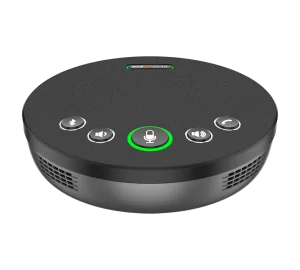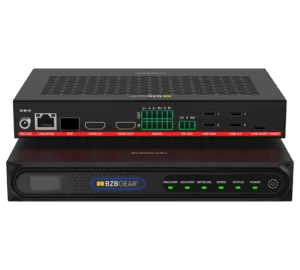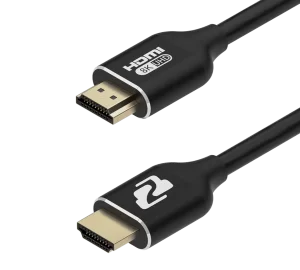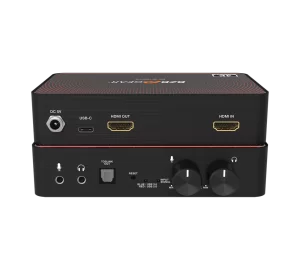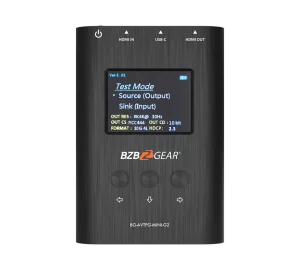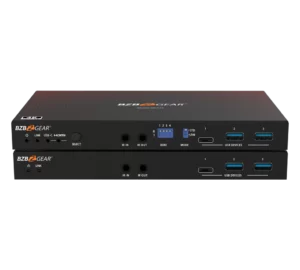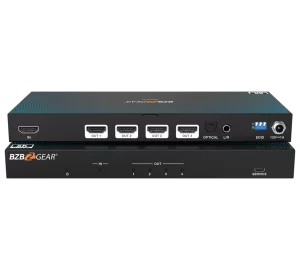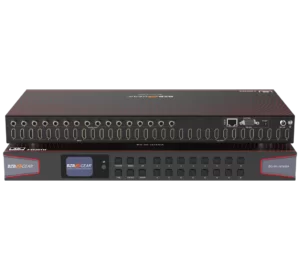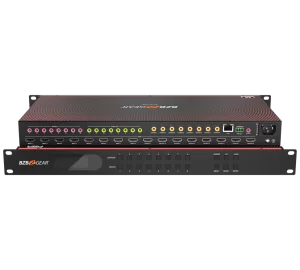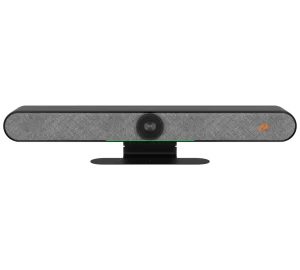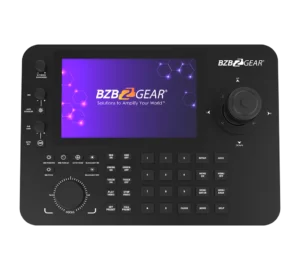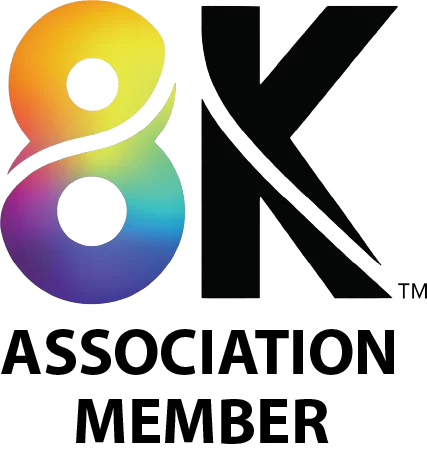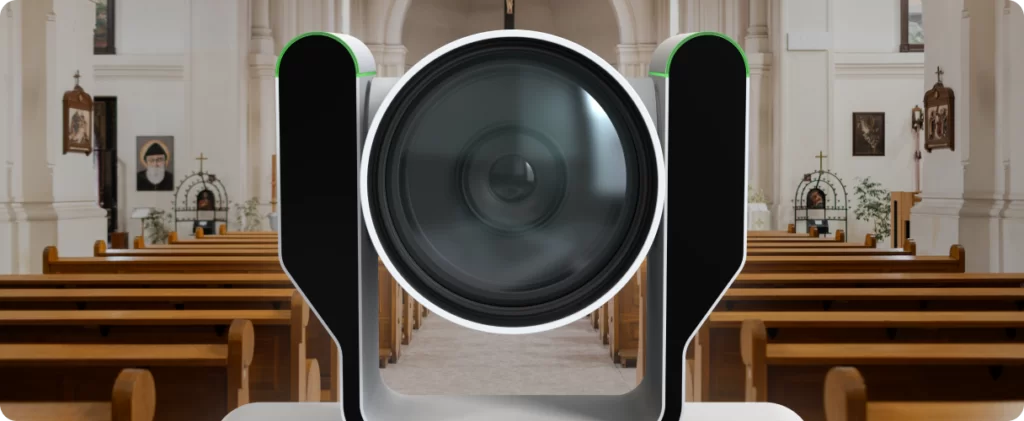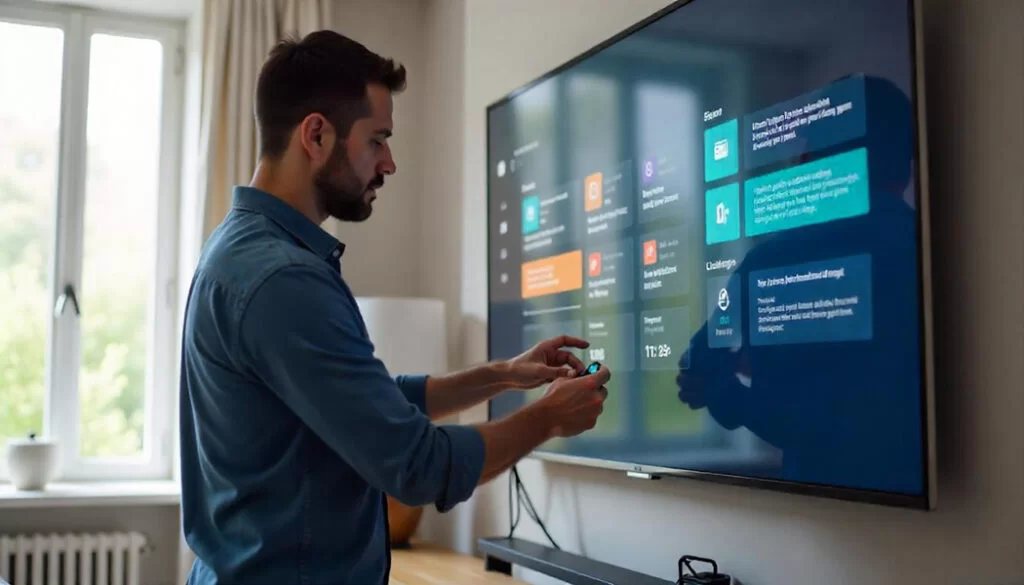Professional AV & Broadcasting Solutions
Audio/Video Products
Cameras & Broadcasting Equipment
Award-Winning Excellence Recognized Worldwide

TOP NEW TECHNOLOGY (TNT) AWARDS 2026 – ISE | BG-AIR4KAST-PRO

TOP NEW TECHNOLOGY (TNT) AWARDS 2026 – ISE | BG-EXH-8K150C

TOP NEW TECHNOLOGY (TNT) AWARDS 2026 – ISE | BG-MC-SERIES

BEST OF SHOW AWARDS 2026 - ISE - AVTechnology | BG-AIR4KAST-PRO

SCN 2025 - Pro AV Best in Market Winner

Best of Show at IBC 2025 - AVTechnology

Best of Show at IBC 2025 - Sound & Video Contractor

CEPro Best Product Awards 2025
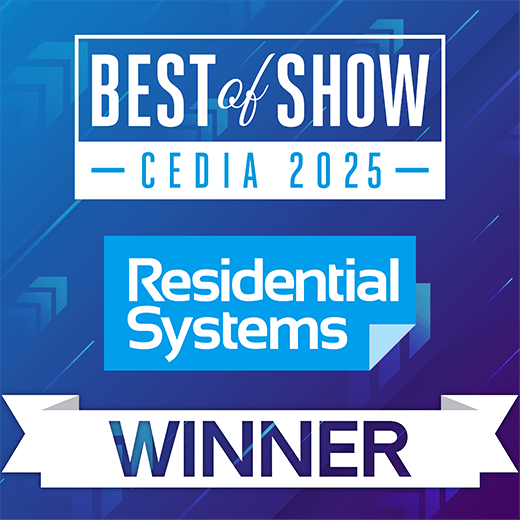
Best of Show - CEDIA 2025 - Residential Systems Winner

Best of Show - CEDIA 2025 - TWICE Winner

BEST OF SHOW AWARDS AT INFOCOMM 2025

COMMERCIAL INTEGRATOR BEST AWARDS 2025

2025 SCN STELLAR SERVICE AWARDS

Top New Technology (TNT) Award 2025

Best of Show at ISE 2025

SVC Innovative Products: Readers' Choice 2024

Media & Entertainment: Best in Market 2024 Awards

PRO AV BEST IN MARKET AWARDS 2024

BEST OF SHOW - IBC 2024

BEST OF SHOW - CEDIA 2024
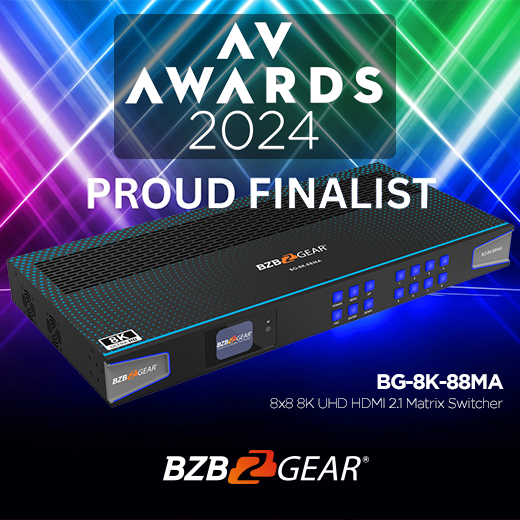
AV AWARDS 2024 - FINALIST

COMMERCIAL INTEGRATOR BEST AWARDS 2024

SCN INSTALLATION PRODUCT AWARDS 2024

2024 SCN STELLAR SERVICE AWARDS

BEST OF SHOW - NAB Show 2024: Sound & Video Contractor Winner

Top 5 Products for Churches from NAB 2024

BEST OF SHOW - ISE 2024: AV Technology Winner

BEST OF SHOW - ISE 2024: Sound & Video Contractor Winner

BEST OF SHOW - ISE 2024: Residential Systems Winner

2024 TOP NEW TECHNOLOGY (TNT) AWARD

2024 Inavation Awards Technology Finalist - Content, Streaming & Broadcast - ISE 2024

2024 Inavation Awards Technology Finalist - Audio (non-loudspeaker) - ISE 2024

2023 Best in Market Awards for Media and Entertainment - TV TECH

Best In-Field Integrator Product - rAVe Agency - CIX 2023
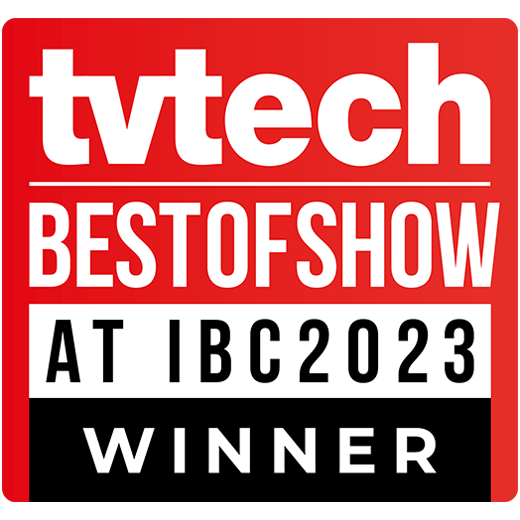
Best of Show - IBC 2023

Processing and Distribution Technology of the Year - AV Awards 2023 Finalist

InfoComm Best of Show - Tech & Learning Magazine Best of Show InfoComm winners 2023

InfoComm Best of Show - SVC Best of Show InfoComm Winners 2023

Best Matrix Switcher - Commercial Integrator 2023 Best Awards

Most Innovative Streaming Product - SCN Installation Product Awards at InfoComm 2023

Best Supporting Content 2023 - SCN Stellar Service Awards

Best of Show at NAB 2023 - Sound and Video Contractor

Best of Show at ISE 2023 - Tech & Learning

Best of Show at ISE 2023 - AV Technology

Top New Technology 2023 - CEPro & Commercial Integrator

Best in Market 2022 - TV Tech

BEST PTZ CAMERA - VIDEOMAKER

Best of Show - IBC 2022

Best of Show Award - Infocomm 2022

Product of the Year - NAB Show 2022

Best of NAB 2022 - Videomaker
40+ Prestigious
Industry Awards


Recognized globally for outstanding innovation in AV technology
New products
NEW
TAA Compliant
Shipping Q2 2026
4K AI Enabled Dual-Lens NDI PTZ Conference Camera with Intelligent Speaker Tracking & Panoramic View
SKU: BG-AVENTO-4K
$1,199.00
NEW
8x8/16x16/36x36 Modular and Fully Configurable Seamless 4K60 Matrix Switcher with Video Wall and Included Control System
SKU: BG-MC-SERIES
NEW
TAA Compliant
8K UHD HDMI HDBaseT Long Range Extender with Bi-directional IR/RS-232/CEC up to 490ft
SKU: BG-EXH-8K150C
$399.00
NEW
TAA Compliant
12G/6G/3G/HD-SDI & HDMI 2.0 Bi-Directional Converter with Audio Embedding and Extraction
SKU: BG-4KBHS
$1,499.00
NEW
TAA Compliant
HDMI 2.0 & 12G/6G/3G/HD-SDI Cross Converter and Scaler with 3.5” LCD Display/Built-in Test Patterns /Audio Embedder/De-Embedder
SKU: BG-4KBHS-PRO
$2,999.00
NEW
Shipping Q1 2026
4K UHD Advanced Multi Input Video Wall Processor with Seamless Switching/Scaling/EDID Management for up to 9 Tvs
SKU: BG-UHD-VWP19
$2,499.00
NEW
Shipping Q1 2026
4K60 UHD Wireless HDMI Sender/Receiver Extender Kit with Ultra-Low Latency
SKU: BG-Air4Kast-Pro
$999.00
NEW
Shipping Q2 2026
All-in-One 4K IP Production Switcher and PTZ Joystick Controller (4-Channel/ Touchscreen/PoE/IP/RS-232)
SKU: BG-Commander-UltraX
$2,499.00
NEW
Shipping Q2 2026
4K60 UHD Wireless HDMI Extender Kit with Multi-Receiver Support (Up to 4 Receivers)
SKU: BG-Air4Kast-MKX
$449.00
NEW
4x1 4K UHD HDMI Seamless Switcher/Scaler/MultiViewer with PIP/Audio De-Embedding and 8 Display Modes
SKU: BG-MV41A-G2
$249.00
NEW
4K UHD HDMI Extender Over Cat5e/6 with PoC/IR/HDMI Loop Out up to 131ft for 4K30
SKU: BG-EXT-H70P
$99.00
NEW
2x1 8K UHD HDMI 2.1 Switcher with Digial/Analog Audio De-Embedding/EDID/RS-232 (8K60/4K120Hz 4:4:4 VRR/ALLM Support)
SKU: BG-8K-HS21AR
$249.00
NEW
4x1 8K UHD HDMI 2.1 Switcher with Digial/Analog Audio De-Embedding/EDID/RS-232 (8K60/4K120Hz 4:4:4 VRR/ALLM Support)
SKU: BG-8K-HS41AR
$349.00
NEW
8K HDMI 2.1 eARC Audio to AV Receiver/Soundbar/Amplifier Converter/Adapter with CEC/EDID Support
SKU: BG-8K-AE
$199.00
NEW
1x8 8K UHD HDMI 2.1 48Gbps Splitter with Auto Downscaling/Audio De-Embedding (8K60/4K120 and VRR/ALLM/QMS/QFT/SBTM Support)
SKU: BG-8K-DA18
$499.00
NEW
4x4 4K UHD HDMI Seamless Matrix Switcher and Video Wall Processor with Scaler/IR/Audio/RS-232
SKU: BG-MVS4X4-CV
$625.00
NEW
4x1 8K UHD HDMI/USB-C 2.1 Switcher (8K60/4K120Hz 4:4:4 VRR/ALLM/QMS/QFT/SBTM Support)
SKU: BG-8K-HCS41
$149.00
NEW
2x2 4K UHD HDMI/USB-C Switcher and Video Wall Controller with Audio De-embedding
SKU: BG-UHD-VW2X2A
$899.00
NEW
2-Channel 150W Compact Class D DSP & Amplifier with Digital/Analog Audio and 2x2 Dante In/Out
SKU: BG-AMP150WD
$1,299.00
NEW
TAA Compliant
Shipping Q2 2026
4K UHD HDMI Over IP Multicast System with Seamless Matrix Switching/MultiView/KVM/USB 3.1/PoE
SKU: BG-IPGEAR-XTREME
$899.00
ELEVATE YOUR
WORKFLOW
Download our free software solutions for PTZ cameras, video switchers and AVoIP
IT’S NICE TO HAVE OPTIONS

News
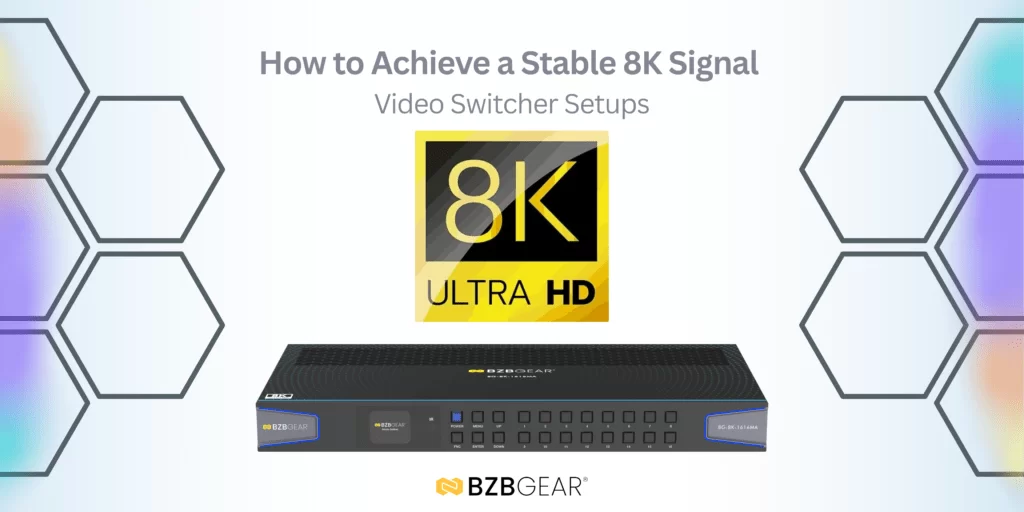
How to Achieve a Stable 8K Signal in Video Switcher Setups
February 20, 2026
Running 8K through a video switcher is very different from working with 4K or HD. At 8K, signal margins are thin, and small mistakes that would never matter at lower resolutions can cause major instability. This guide explains how to handle 8K signals properly and how to design, configure, and troubleshoot a stable 8K switcher […]

How to Build an Affordable Live Stream Studio
February 20, 2026
Building a live streaming studio doesn’t require a dedicated room, a massive budget, or professional broadcast experience. This guide walks through how to build a clean, reliable, affordable live stream studio, focusing on what actually improves quality and what beginners should avoid. If you’re ready to begin your livestream studio building journey, reach out to […]
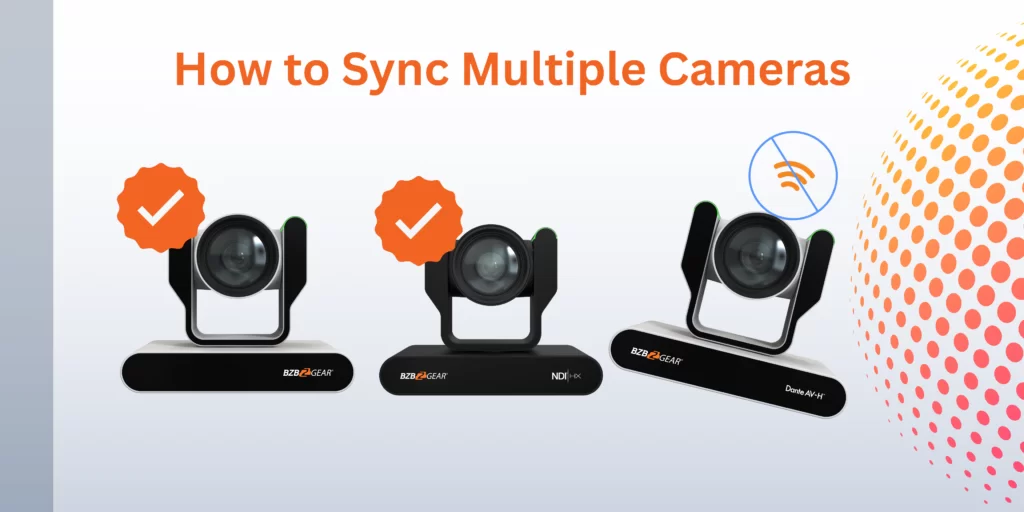
How to Sync Multiple Cameras for Live Events
February 19, 2026
Common Sync Problems in Multi-Camera Setups Sync issues are often misunderstood because they can appear intermittent or device-specific. In reality, most problems come from a handful of predictable causes: mismatched camera settings, processing latency differences, audio timing errors, or network-induced delay. Understanding these root causes makes sync issues far easier to prevent and correct. If […]
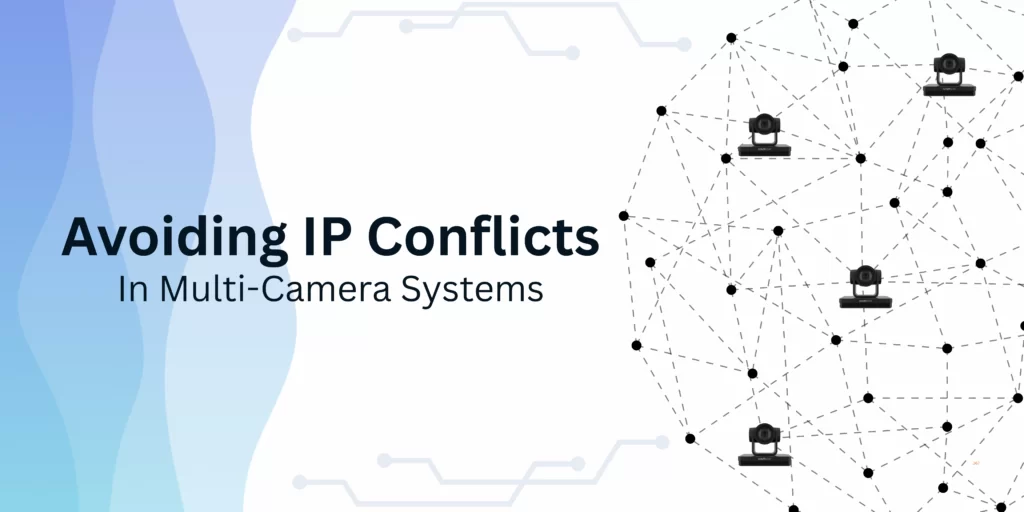
Avoiding Network Conflicts in Multi-Camera Setups
February 13, 2026
In multi-camera systems, IP address conflicts can cause a wide range of issues, including loss of camera control, network dropouts during streaming, cameras behaving unpredictably, or multiple cameras responding simultaneously as if they were a single device. These problems are often difficult to diagnose because they can appear random or seem related to unrelated factors. […]

Why Creators Get Flagged for Low Quality Content (and How to Fix It)
January 27, 2026
If you are in the creator space, you may have heard of or experienced seeing content, mainly video content, being flagged for low quality. This has resulted in some creators being removed from monetization or creator programs that many social media platforms now offer. More specifically, you may or may have received one of these […]
Events
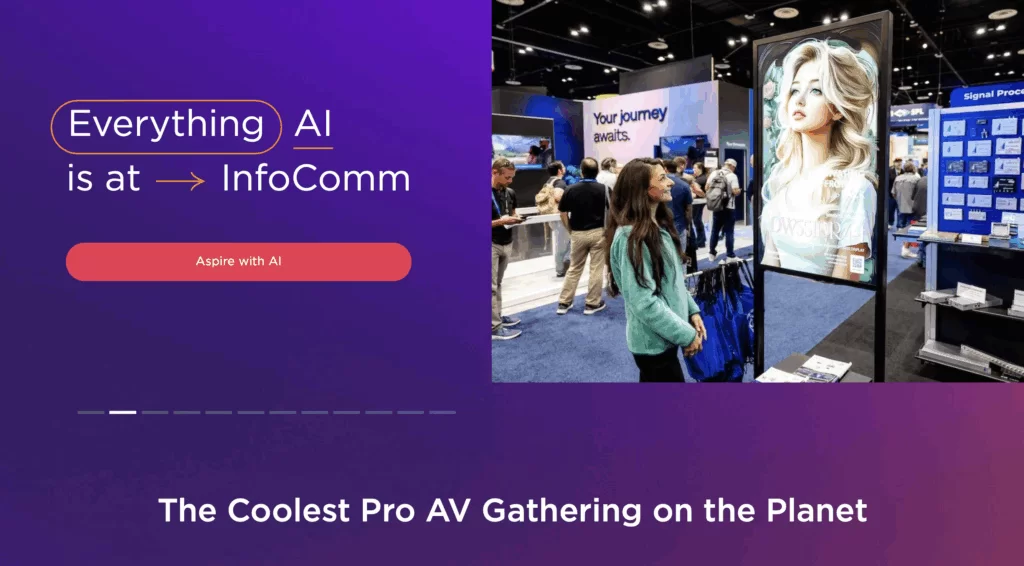
InfoComm 2026 | Las Vegas, NV
06/17/2026 - 06/19/2026
InfoComm 2026 | Las Vegas, NV InfoComm is a leading trade show for the audiovisual and integrated experience industry. It features cutting-edge audiovisual technology, collaboration solutions, and digital signage, catering to professionals in various sectors, including corporate, education, and entertainment. Learn more about InfoComm 2026: https://www.infocommshow.org/

CEDIA Expo 2026 | Denver, CO
09/01/2026 - 09/04/2026
CEDIA Expo 2026 | Denver, CO CEDIA Expo 2026 will take place September 1 to 4, 2026 in Denver, Colorado, USA. The event brings together professionals from the smart home and residential AV industries, including system integrators, manufacturers, and technology partners. The exhibition focuses on home automation, audio video integration, networking, and control solutions […]

IBC 2026 | Amsterdam, Netherlands
09/11/2026 - 09/14/2026
IBC 2026 | Amsterdam, Netherlands IBC 2026 will be held September 11 to 14, 2026 in Amsterdam, Netherlands. IBC is one of the leading global exhibitions for media, entertainment, and broadcast technology. The show covers content production, distribution, streaming, and professional audiovisual solutions, bringing together industry leaders and technology providers from around the world. […]

InfoComm América Latina 2026 | Mexico City, Mexico
10/21/2026 - 10/23/2026
InfoComm América Latina 2026 | Mexico City, Mexico InfoComm América Latina 2026 will take place October 21 to 23, 2026 in Mexico City, Mexico. The exhibition is focused on professional audiovisual technologies for the Latin American market, including commercial AV, unified communications, digital signage, and live event solutions. InfoComm America Latina serves as a […]
Configure the perfect solution
Use our configurator to instantly assemble any size Pro AV or Broadcasting solutions. Choose between main different parameters to get BZBGEAR products ideal fit to your solution.
BZBGEAR’s Strategic Partnerships
BZBGEAR proudly collaborates with some of the most innovative technology providers and prestigious professional associations in the industry.

